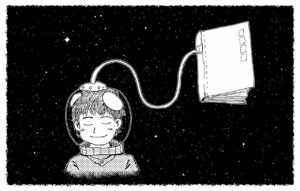

Autora: Verónica Amaro Bermejo
Sometimes English phrasal verbs make sense… but another time, they seem totally random.
Phrasal verbs open up a new world of possibilities for speaking English. They are used often in everyday conversation, so it´s very important that you know them
But, what is a phrasal verb? It is a phrase that’s made up of a verb and another word or two, usually a preposition but sometimes an adverb.
Phrasal verbs work by changing the verb’s meaning based on the preposition that follows them.
You probably already know a number of phrasal verbs. English phrasal verbs are everywhere, so one of the best ways to learn them is to try to listen for them. These phrases are commonly used, and would not be unusual to hear in a conversation. Do you hear a verb used together with another word very often? It might be a phrasal verb.
There are so many phrasal verbs that it might seem difficult to learn them all. But many of these phrases become natural after a while you should to learn them with some repetition and practice.
By the other hand, phrasal verbs are used just like verbs. You can use them anywhere they make sense!
Another thing to keep in mind about phrasal verbs is that they are still verbs. That means the verb part of the phrase can be changed depending on the tense and subject of the sentence.
Here you are some examples of the most common phrasal verbs;
Turn On / Turn Off
Turn on the TV (I want to watch a program)
Turn off the TV (it’s time to go to bed)
Put On / Take Off
I was cold, so I put on a jacket.
When I get home, I always take off my shoes.
You can use put on / take off with clothes, shoes, hats, watches, and jewelry.
Find Out
To discover or learn information.
Can you find out what time the first train to London arrives?
I just found out that my coworkers are going to have a surprise birthday party for me.
Find out can be used to discover information on purpose (first example) or by accident (second example).
Give Up
To stop doing something.
I need to give up smoking.
The book was so difficult that I gave up. I didn’t finish the book.
My doctor says I need to give up fast food.
You can use give up with an activity (smoking) or a thing (fast food).
Put Away
To put something in its place.
Your clothes are all over the floor. Please put them away.
I put away all the toys, then cleaned the house.
Throw Away (Throw Out)
To put something in the garbage/trash.
The bananas were rotten, so I threw them away.
I accidentally threw out some important documents!
Fill In
To give missing information.
Please fill in the missing word in this sentence: My sister _____ 8 years old.
To get a passport, I filled in two forms and paid $200.



